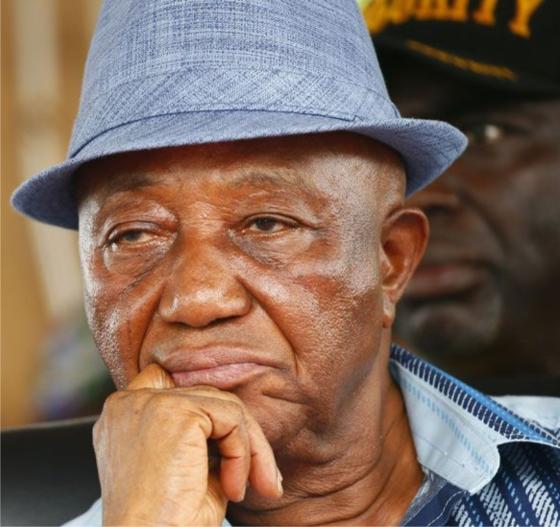Liberia: And You Too, Boakai?

President Joseph Nyumah Boakai.
…. Provocative language — we want Boakai to know only exacerbates divisions—fans the flames of hostility and does not reflect well on his hard-earned character.
Former Vice President Joseph Boakai’s warning that the Unity Party, which he leads, would not sit idly and watch the ruling party of President George Weah employ tactics of fear and aggression against his supporters is deeply worrisome.
While the provocative attitude of some of President Weah’s supporters on the opening of the elections campaign season on August 5 — during which time they paraded a casket plastered with images of the former Vice President was wrong and unnecessary — Boakai should not have gone so low to threaten a violence response whenever his supporters are attacked or intimidated.
Supporters of Weah’s ruling Coalition for Democratic Change have a tendency of engaging in violence during elections since the inauguration of President George Manneh Weah nearly six years ago; but it is surprising to see Boakai, who is widely regarded as a peaceful person, to be preaching violence.
“The Unity party will not sit and allow you to walk on us. Nobody has a monopoly over violence,” Boakai said in an address to a crowd of exuberant supporters on August 14. “The Unity Party is not a Party of violence, we respect the rule, however, we will not shy away from resisting and demanding respect and peaceful contest at any cost.”
This aggressive rhetoric is not just a mere statement but it carries weight and risks fanning the flames of electoral violence and perpetuating a cycle of aggression that will only hinder the country’s collective progress.
What Boakai should have done was to call on both his supporters and Weah to exercise restraint and show a commitment to a peaceful election while condemning the violent clash that took place between his supporters and that of the President on August 10, leading to injuries on both sides.
Surprisingly, Boakai did not, but went on indulging in threats, which has the propensity to create an environment in which his supporters would consider resorting to violence as a response to violence — further destabilizing the nation.
And so we ask: What compels a seasoned statesman like Boakai to resort to threatening language? Is it a reflection of frustration, a strategic political maneuver, or an unintended oversight?
Regardless of whether we have an answer or not — one thing we know for sure is that the former Vice President’s threatening language can severely escalate tensions and even incite violence. In Liberia, where memories of violence are still fresh, he of all people should be able to rise above the temptation of provocation… and not fall for it as he has already done.
The weight of leadership demands that words be chosen carefully, with an understanding of their potential impact on a nation still in the process of healing.
In this light, the former Vice President’s choice of words sends a troubling message, implying that in Liberia, violence can be met with violence. This mindset not only disregards the principles of conflict resolution but also undermines the painstaking efforts of those who have worked tirelessly to rebuild Liberia from the ashes of war.
His statement is also a stark reminder that he failed to grasp the weight of his words and the potential ramifications it has on the country’s stability during this election period.
Peace is not a static state but a continuous endeavor, requiring constant nurturing and vigilance. It thrives when differences are resolved through dialogue rather than intimidation.
And so, Boakai's threatening rhetoric represents a departure from this fundamental principle, painting a disturbing picture of a potential return to the very chaos Liberia has fought so hard to overcome.
On this note, we say Boakai was wrong this time around, considering that the threat is coming from a person of his caliber who holds positions of great influence.
Provocative language — we want Boakai to know — only exacerbates divisions and fans the flames of hostility and does not reflect well on his hard-earned character; as such rhetoric is not shaping his followers to become good citizens but to incite or participate in violence.
To whom much is given, much is required.
